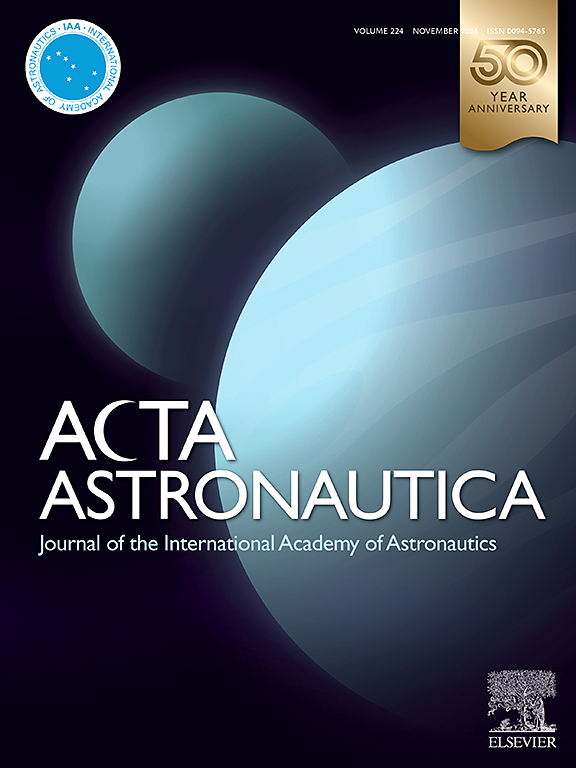Robust adaptive guidance for autonomous asteroid landing via search-based meta-reinforcement learning
IF 3.4
2区 物理与天体物理
Q1 ENGINEERING, AEROSPACE
引用次数: 0
Abstract
Future asteroid missions require safe landings despite limited prior knowledge and significant uncertainties, posing a critical challenge to current autonomous guidance strategies. This paper introduces a novel robust adaptive guidance framework that integrates meta-reinforcement learning with Monte Carlo Tree Search (MCTS) to enable both rapid learning and efficient adaptation to diverse asteroids. The framework leverages a recurrent network within its meta-reinforcement learning architecture to perceive and respond to dynamic system parameters, ensuring adaptability across varied mission scenarios. The network is trained via an MCTS-based optimization algorithm, where the tree search enhances policy exploration and effectively handles the high-latency rewards of the landing task. Moreover, we introduce an enhanced MCTS by incorporating double progressive widening modifications to refine the deployed action policies. Numerical simulations demonstrate the proposed framework’s superior performance and robustness in achieving reliable landing guidance across a wide range of environmental uncertainties.
基于搜索的元强化学习的自主小行星着陆鲁棒自适应制导
未来的小行星任务需要安全着陆,尽管有限的先验知识和重大的不确定性,对当前的自主制导策略提出了重大挑战。本文介绍了一种新的鲁棒自适应制导框架,该框架将元强化学习与蒙特卡罗树搜索(MCTS)相结合,以实现快速学习和有效适应不同的小行星。该框架利用元强化学习架构中的循环网络来感知和响应动态系统参数,确保在不同任务场景中的适应性。该网络通过基于mcts的优化算法进行训练,其中树搜索增强了策略探索,并有效地处理了着陆任务的高延迟奖励。此外,我们引入了一个增强的MCTS,通过合并双渐进式扩展修改来完善部署的操作策略。数值仿真结果表明,该框架在大范围不确定性环境下具有优异的性能和鲁棒性,能够实现可靠的着陆制导。
本文章由计算机程序翻译,如有差异,请以英文原文为准。
求助全文
约1分钟内获得全文
求助全文
来源期刊

Acta Astronautica
工程技术-工程:宇航
CiteScore
7.20
自引率
22.90%
发文量
599
审稿时长
53 days
期刊介绍:
Acta Astronautica is sponsored by the International Academy of Astronautics. Content is based on original contributions in all fields of basic, engineering, life and social space sciences and of space technology related to:
The peaceful scientific exploration of space,
Its exploitation for human welfare and progress,
Conception, design, development and operation of space-borne and Earth-based systems,
In addition to regular issues, the journal publishes selected proceedings of the annual International Astronautical Congress (IAC), transactions of the IAA and special issues on topics of current interest, such as microgravity, space station technology, geostationary orbits, and space economics. Other subject areas include satellite technology, space transportation and communications, space energy, power and propulsion, astrodynamics, extraterrestrial intelligence and Earth observations.
 求助内容:
求助内容: 应助结果提醒方式:
应助结果提醒方式:


